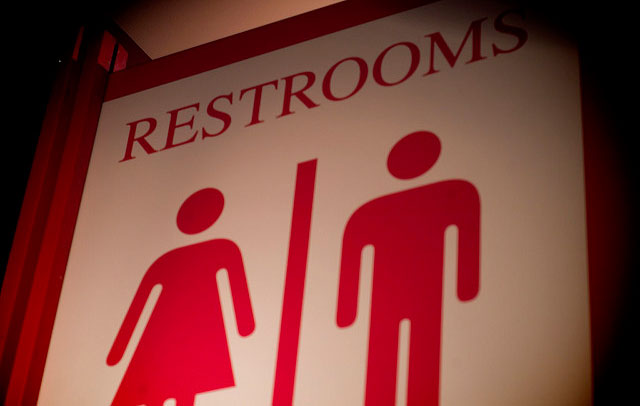
On February 22, 2016, the Charlotte City Council in North Carolina voted 7-4 to expand antidiscrimination protections, including protections for transgender (trans), queer and gender-nonconforming people to self-determine which public bathrooms they use.
At the time of the initial vote, North Carolina Gov. Pat McCrory threatened “immediate state legislative intervention” if the expansion proved successful. He and the state’s General Assembly made good on their threat, subsequently calling a special session with the introduction of new legislation, which passed through both chambers and was signed by McCrory all within 12 hours.
The new legislation, now law, not only undoes the expansion, but also ensures that any new or pre-existing local protections that exceeded state protections would be nullified. Cities in North Carolina are now barred from passing more expansive antidiscrimination laws and will find those already in existence, like regulations intended to protect against racist housing practices, will no longer be actionable.
Fighting against the “trans bathroom panic” on all fronts, including the legal front, is vital.
This struggle, or so the narrative goes, is around trans and gender-nonconforming people’s access to public bathrooms. These bathrooms are what writer Samuel Delany might call “zones of contact,” one of the last vestiges of ever-shrinking public space where people of different races, classes, abilities, ages and, yes, genders interact. Campaigns for bathroom “safety” signify cisgender (non-trans) people’s anxieties over the loss of white, cis sovereignty.
KeepNCSafe.org, a website run by those opposing the initial expansion, makes these anxieties plain. At the bottom of the website a doomsday clock counted down toward April 1, the day the new protections were to go into effect. With the governor’s signature, the clock was zeroed out, and now reads “Charlotte’s Bathrooms Will Remain Safe Starting Today!”
The webpage promotes “trans bathroom panic” — the mythological fear that trans women’s desire to use a gender-affirming bathroom cloaks their primary drive: access to young, presumably non-trans girls.
This unfolding scene, dramatized through the legislative acrobatics of North Carolina but generalized elsewhere, has been presented by the media as a “backlash” to the new protections LGBT people are assumed to enjoy, including marriage equality, the overturning of the military’s “Don’t Ask, Don’t Tell” policy and the proliferation of trans visibility in corporate media.
Yet reading the actions of Governor McCrory as a backlash to our current moment assumes that assimilation for some LGBT people (mostly those who are white, non-trans and non-disabled) has no relationship to the heightened and sustained violence against other trans or queer people. Understanding how assimilation, via democratic incorporation, reproduces anti-trans and anti-queer violence is central if we are committed to building a world where violence is ended, and not simply shifted.
Fighting against the “trans bathroom panic” on all fronts, including the legal front, is vital. Yet if we were to see that antidiscrimination protections don’t actually offer protection, then an alternative analysis might open. Or, put another way, this materialization of anti-trans violence is not an aberrant outcome that might find redress simply through “education” or legal remedy, but is — along with anti-Black racism and settler colonialism, among other iterations of domination — a force that structures the United States.
The urgency of these questions cannot be overstated. While news of the North Carolina law broke, word spread of the murder of yet another trans woman of color, Quartney Davia Dawsonn-Yochum, who was shot in downtown Los Angeles. Her murder, although allegedly committed by a single individual, is symptomatic of the racialized, anti-trans world we inhabit.
Indeed, the law’s power is evidenced by how it both references and produces us. To be before the law is to be a subject, and turning away from the desire for recognition is terrifying, especially for those who know their standing is always partial, contingent and under threat of erasure. Yet, divesting from our legal attachments allows us to grow our collective struggles, from communities of care to intensified direct actions.
Further, listening outside of the known, to the lower frequencies where the everydayness of anti-trans violence buzzes, from “bathroom panics,” to imprisonment, to murder, offers a different route. Here we might find connection, not through collapsing these examples as equivalent, but by way of an attention to the foundational violence that underlies all of them. It is also here, where trans, queer and gender-nonconforming people are most directly impacted in the crosshairs of regulations, where we can continue to build technologies of resistance, flourishing and brilliance that might free us all.
Media that fights fascism
Truthout is funded almost entirely by readers — that’s why we can speak truth to power and cut against the mainstream narrative. But independent journalists at Truthout face mounting political repression under Trump.
We rely on your support to survive McCarthyist censorship. Please make a tax-deductible one-time or monthly donation.